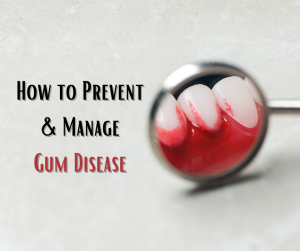
In the realm of oral health, we often focus on the importance of maintaining cavity-free teeth and a bright smile. However, one crucial aspect that sometimes takes a back seat is the health of our gums. Healthy gums play a fundamental role in overall oral well-being, impacting not only our teeth but also our systemic health. Let’s delve into the significance of gum health and provide valuable tips for preventing and managing gum disease.
Understanding the Importance of Gum Health
1. Gums as the Foundation
Your gums serve as the foundation for your teeth. Healthy gums provide support and protection, anchoring teeth securely in place. When gums are compromised, it can lead to a range of issues, including tooth loss, and even affect the underlying bone structure.
2. The Link Between Gum Health and Systemic Well-Being
Research has established a connection between gum health and overall health. Conditions such as cardiovascular disease and diabetes have been linked to gum disease. Maintaining healthy gums contributes not only to a beautiful smile but also to a healthier body.
Tips for Preventing Gum Disease
1. Adopt a Consistent Oral Care Routine
Brush your teeth at least twice a day using fluoride toothpaste and floss daily. Consistent oral hygiene is the first line of defense against gum disease. Ensure you use a soft-bristled toothbrush and brush and spend at least two minutes brushing, covering all surfaces of your teeth. Flossing should be done gently between teeth to remove plaque and debris. Electric toothbrushes help remove significantly more plaque than traditional toothbrushes.
2. Regular Dental Check-ups:
Professional cleanings help remove plaque and tartar buildup, preventing the progression of gum disease. Regular check-ups allow your dentist to detect early signs of gum disease and provide professional cleanings to remove hardened plaque and tartar, especially in areas difficult to reach with regular brushing and flossing.
Schedule routine dental check-ups and cleanings, at least every 6 months. Periodontal disease can affect the frequency of dental check-ups. You can discuss how often is best for you to visit the dentist with your dental hygienist. Request an appointment at our Hanahan office or North Charleston office to schedule your next cleaning with us.
3. Quit Smoking:
Smoking is a significant risk factor for gum disease. Quitting smoking not only benefits your gums but also improves your overall health. Smoking reduces blood flow to the gums, making it harder for them to heal. Quitting smoking is crucial for preventing and managing gum disease, as it enhances blood circulation and supports gum tissue health.
4. Balanced Diet:
A nutritious diet plays a role in gum health. Include foods rich in vitamins and minerals, particularly vitamin C, which supports gum health. Vitamin C prevents gum inflammation and is essential for collagen production, a key component of healthy gums. Incorporate fruits and vegetables like oranges, strawberries, and leafy greens into your diet. Avoid excessive sugar consumption, as it can contribute to plaque formation.
Managing Gum Disease
1. Early Intervention:
Recognize the signs of gum disease, including red or swollen gums, bleeding while brushing, and persistent bad breath. Seek dental care promptly for early intervention and DON’T ignore symptoms. Early stages of gum disease (gingivitis) are reversible with proper dental care. Schedule an appointment if you notice any changes in your gums or experience discomfort.
2. Scaling and Root Planing:
For advanced gum disease, your dentist may recommend scaling and root planing to remove tartar beneath the gumline and smooth the tooth roots, promoting gum healing. Scaling involves removing plaque and tartar from the tooth surfaces, including below the gumline. Root planing smooths the tooth roots, making it more difficult for bacteria to adhere. This process aids in gum reattachment and reduces inflammation.
3. Prescribed Medications:
In some cases, antibiotics or other medications may be prescribed to manage gum disease, especially if infection is present. Depending on the severity of the gum disease, your dentist may recommend antibiotics, antimicrobial mouthwashes, or other medications to control bacterial growth and promote healing.
4. Lifestyle Modifications:
Adopting a healthier lifestyle, including stress management and regular exercise, can contribute to better gum health. Chronic stress and a sedentary lifestyle can compromise the immune system and contribute to inflammation, affecting gum health. Incorporate stress-reduction techniques and regular physical activity into your routine for overall well-being.
Prioritizing gum health is a key component of maintaining oral and bodily well-being. By adopting preventive measures and addressing gum disease early on, you not only safeguard your smile but also contribute to your general health. Remember, a healthy mouth leads to a healthier life. Schedule regular dental check-ups, practice good oral hygiene, and make conscious choices that support your gum health for a lifetime of smiles.

